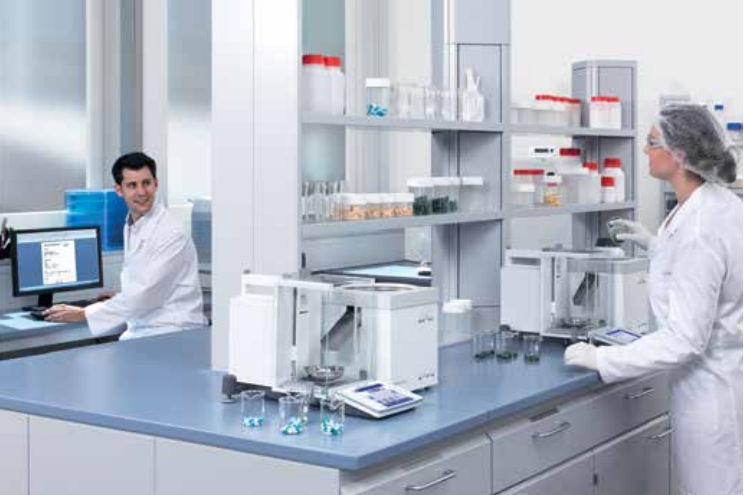Researchers at the forefront of developing machine learning methods for chemical discovery
Machine learning to help identify drug candidates
Prof. Alexandre Tkatchenko and his research team at the University of Luxembourg have been awarded grants totalling 500,000 euros to conduct research in the emerging field of machine learning methods for chemical discoveries.

Symbolic image
geralt, pixabay.com
The discovery and formulation of new drugs, antivirals, antibiotics and in general chemicals with tailored properties is a long and painstaking process. Interdisciplinary research at the crossroads of biochemistry, physics and computer science can change this. The development of machine learning (ML) methods, combined with first principles of quantum and statistical mechanics and trained on increasingly available molecular big datasets, has the potential to revolutionise the process of chemical discovery.
“Chemical discovery and machine learning are bound to evolve together, but achieving true synergy between them requires solving many outstanding challenges,” says Alexandre Tkatchenko, Professor of Theoretical Chemical Physics at the University.
Machine learning to help identify drug candidates
The University initiated a collaboration with Belgian company Janssen Pharmaceuticals in spring 2020 to develop novel ML methods for identifying compounds that have a strong therapeutic potential (also called drug candidates). So far, ML approaches have been developed for small molecules. This research project aims to extend the architecture and transferability of quantum mechanics-based machine learning approaches to large molecules of pharmaceutical importance.
“The generation of novel chemicals with activity on relevant biological targets is the core business of pharmaceutical companies. Machine learning approaches have the potential to speed up the process and reduce failure rates in drug discovery. Having been approached by a leading pharmaceutical company to work together in identifying drug candidates is a gratifying sign of the industrial recognition of our expertise,” comments Dr. Leonardo Medrano-Sandonas, a postdoctoral researcher in Prof. Tkatchenko’s group.
Partner in an Innovative Training Network funded by the European Commission
Together with three large European pharma companies (Bayer, AstraZeneca, Janssen), the chemical company Enamine and ten academic partners with expertise in computational drug design, Prof. Tkatchenko has been granted the Marie Skłodowska-Curie Actions - Innovative Training Network grant for the project Advanced machine learning for Innovative Drug Discovery (AIDD) for the period 2021 - 2023. This project aims to develop innovative ML methods to contribute to an integrated “One Chemistry” model that can predict outcomes ranging from molecule generation to synthesis and understand how to intertwine chemistry and biology to develop new drugs.
Here scientific expertise joins forces with medicinal and synthetic chemistry expertise of the industrial partners, and benefits from large valuable datasets. For the first time, all methodological developments will be available open source. The training network will prepare a generation of scientists who have skills both in machine learning and chemistry to advance medicinal chemistry.
“Making accurate predictions using machine learning critically depends on access to large collections of high-quality data and domain expertise to analyse them,” explains Prof. Tkatchenko. “Putting our forces together is a first step towards chemical discovery revolution driven by machine learning”.
The field of machine learning for chemical discovery is emerging and substantial advances are expected to happen in the near future. Prof. Tkatchenko has recently published an article in the journal Nature Communications in which he discusses recent breakthroughs in this field and highlights the challenges for the years to come.
Original publication
Original publication
Other news from the department science

Get the chemical industry in your inbox
By submitting this form you agree that LUMITOS AG will send you the newsletter(s) selected above by email. Your data will not be passed on to third parties. Your data will be stored and processed in accordance with our data protection regulations. LUMITOS may contact you by email for the purpose of advertising or market and opinion surveys. You can revoke your consent at any time without giving reasons to LUMITOS AG, Ernst-Augustin-Str. 2, 12489 Berlin, Germany or by e-mail at revoke@lumitos.com with effect for the future. In addition, each email contains a link to unsubscribe from the corresponding newsletter.
Most read news
More news from our other portals
Last viewed contents
Ununseptium
Gemology
Donepezil
1,2-Dibromoethane
Coating
Pyrolysis
Navier-Stokes_equations

The Characterization of Pharmaceuticals Using Thermal Analysis - Our Guide Provides Insight into the Routine Practice and Benefits of Thermal Analysis Techniques
Sartorius continues to grow by double digits - Growth dynamics of the Lab Products & Services Division impacted by softer European demand

From Paper to Digital - Management of Weighing Data -
Daunorubicin





























































